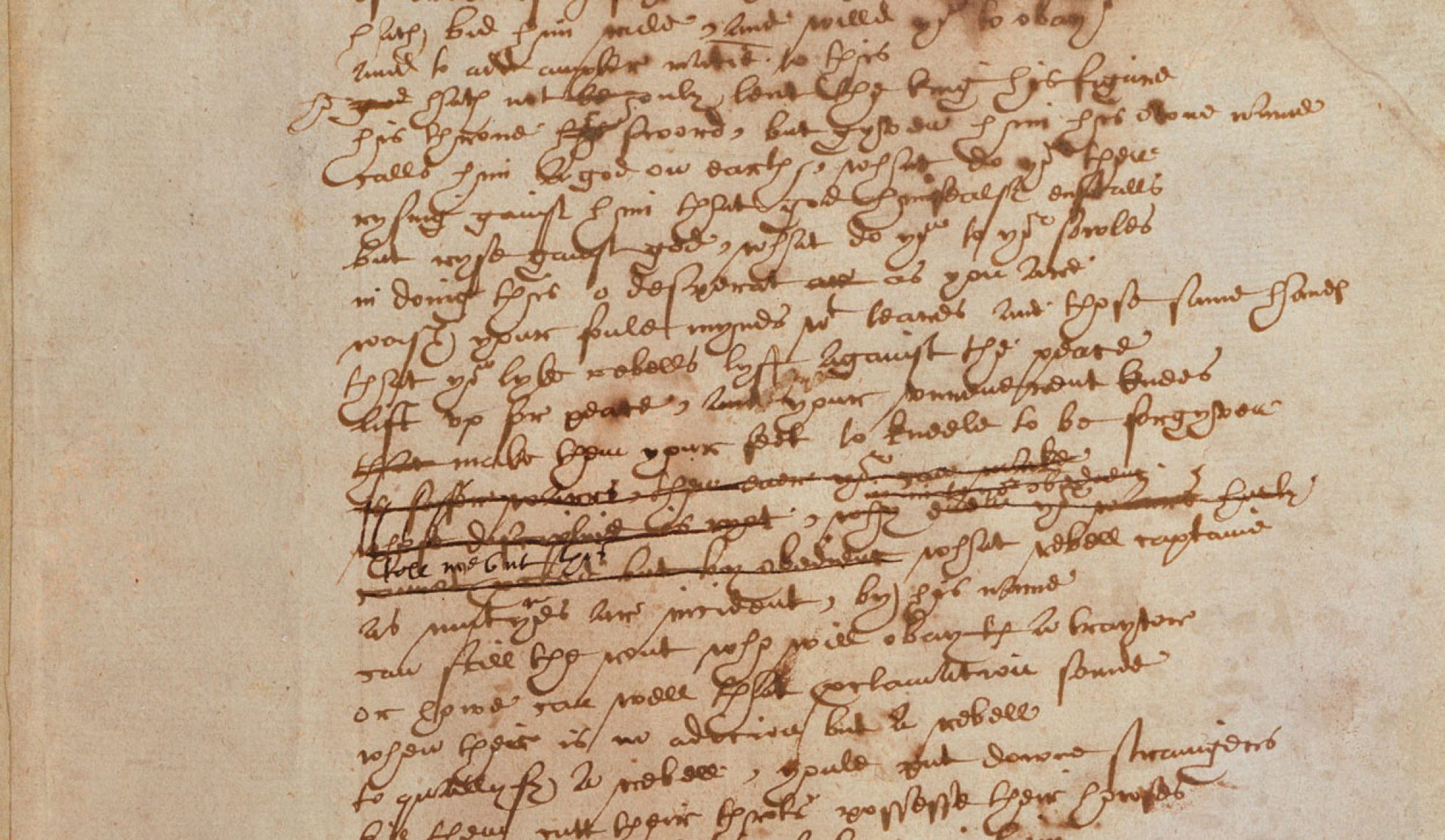One more lucky leap into the middle of our play, this time Polixenes’ first speech in Bohemia. Among the more interesting generalizations we made was that the prose here seemed tortured (especially in terms of word order) in ways we ordinarily associate with verse; particularly interesting given that the verse, in its strong enjambments and rhythmic liberties, sometimes seems to tend toward vigorous prose. (The class distinctions between verse and prose, so reliable earlier in Shakespeare’s career, seemed to be gone altogether.) We also found pronoun omission, brevity of phrasing, and heavy use of parentheses, sometimes overbalancing the clauses on which they depend. Also, Scott pointed out, lots of contractions, economies that had the effect of making the language seem even denser, almost to bursting—dense or fast, faster than any auditor could think, if not faster than the speaker. (There’s something interesting here about communication as a problem of speed: characters thinking too fast or to slow for one another, out of sync.)
Jeewon pointed out that Barton’s claim about disjoining style from character seemed more convincing than the claim that the play converges toward a single style, and I would have to agree. We watched many idioms (discourses? per Berger, per Foucault?) circulate among different characters, but they were, for all that, distinct, from Polixenes’ opening ceremoniousness to Leontes’ self-amplifying paranoia to the songs in Bohemia etc. Still one could wonder: does the play nonetheless have something like a baseline style, from which all these variants are derived? An average style? Which would partake of some of the features above and is certainly different from the baseline style of earlier plays. That is a question that stays with me. (It’s a basic question in the theory of style: is style [always] deviant, and if so, from what; might that what differ from text to text; or is the repertory of styles a network without a center?)
And why does it happen in late Shakespeare? The funny combination, I think quite characteristic, of a language so radically NEW which is also in so many ways surprisingly OLD; especially the interest in romance (Ben Jonson’s “moldy tales”), the prominence of alliteration, etc. More to say about the place of language history in the play. Does Shakespeare’s journey out the other side of tragedy demand the formation of a common idiom, more shared among characters who must find a way of surviving together? Or is it rather a kind of internalization, social problems subtly transposed into the theater of the maker’s mind (a la Richard II in prison)?
Well…I could go on, and we did, but we are all going to keep reading Shakespeare I trust and so let these questions be the matter for our ad hoc reunions. My next project is to go back to my draft of an essay for the Cambridge Companion to Shakespeare’s Language on “Shakespeare’s Style.” It was supposed to be in production now, but seems to have been delayed long enough that I can continue to tinker—and so let me close by saying that anyone who’d like to read a draft and offer me counsel, please let me know. Anything I give them, and anything I write on the subject from here on out, will vibrate with our many voices—so thank you for that and for everything.
Jeff
